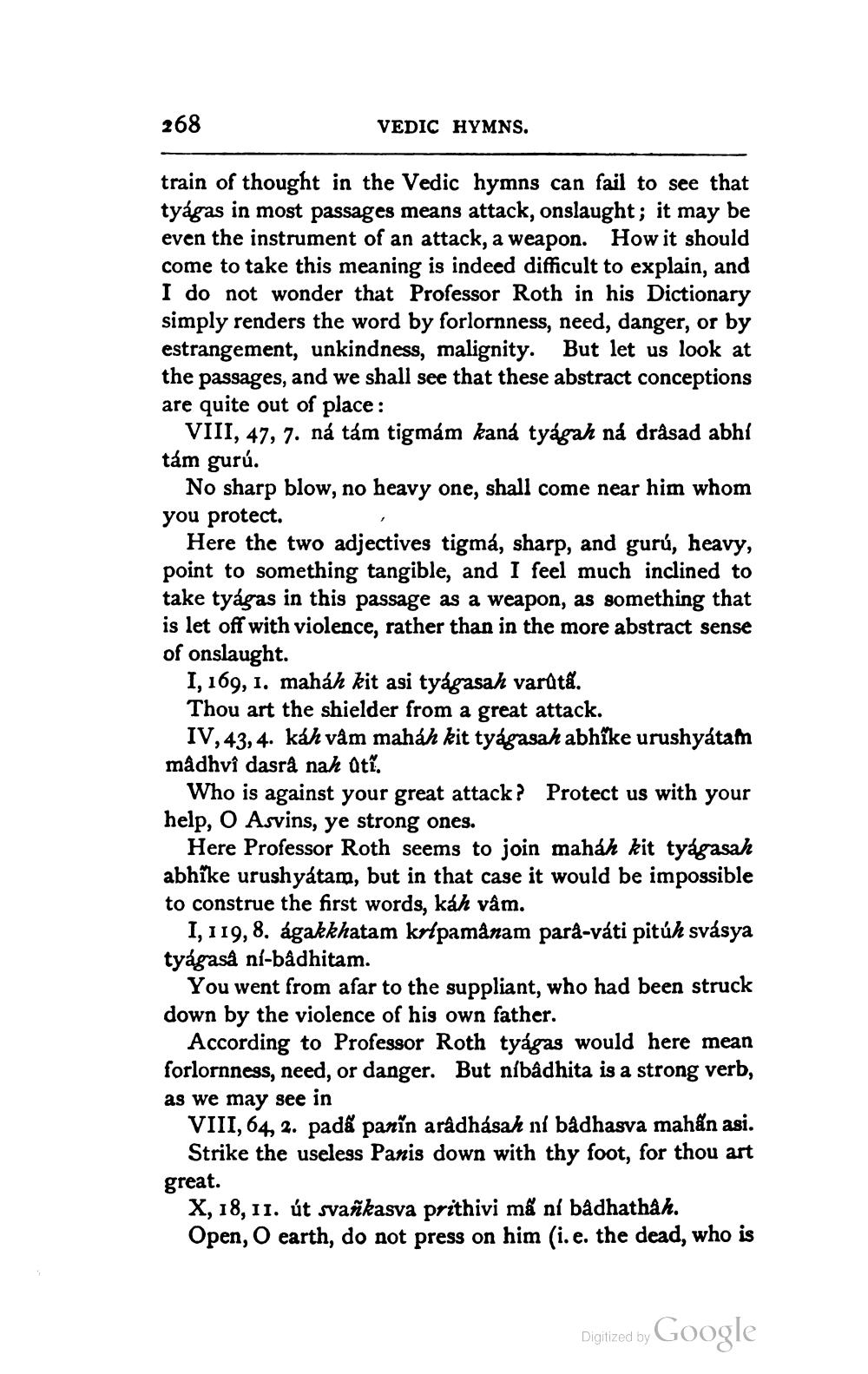________________
268
VEDIC HYMNS.
train of thought in the Vedic hymns can fail to see that tyágas in most passages means attack, onslaught; it may be even the instrument of an attack, a weapon. How it should come to take this meaning is indeed difficult to explain, and I do not wonder that Professor Roth in his Dictionary simply renders the word by forlornness, need, danger, or by estrangement, unkindness, malignity. But let us look at the passages, and we shall see that these abstract conceptions are quite out of place:
VIII, 47, 7. ná tám tigmám kaná tyágah ná drásad abhi tám gurú.
No sharp blow, no heavy one, shall come near him whom you protect.
Here the two adjectives tigmá, sharp, and gurú, heavy, point to something tangible, and I feel much inclined to take tyágas in this passage as a weapon, as something that is let off with violence, rather than in the more abstract sense of onslaught.
I, 169, 1. maháh kit asi tyágasah varata. Thou art the shielder from a great attack.
IV, 43, 4. kah vam mahah kit tyágasah abhỉke urushyatam madhvi dasrå nah ati.
Who is against your great attack? Protect us with your help, O Asvins, ye strong ones.
Here Professor Roth seems to join mahah kit tyágasah abhĩke urushyátam, but in that case it would be impossible to construe the first words, káh vâm.
I, 119, 8. ágakkhatam kripamånam para-váti pitúh svásya tyágaså ni-bådhitam.
You went from afar to the suppliant, who had been struck down by the violence of his own father.
According to Professor Roth tyágas would here mean forlornness, need, or danger. But nibâdhita is a strong verb, as we may see in
VIII, 64, 2. padá panin arâdhásah ní bådhasva mahấn asi.
Strike the useless Panis down with thy foot, for thou art great.
X, 18, 11. út svañkasva prithivi må ni bådhathåh. Open, O earth, do not press on him (i.e. the dead, who is
does na hot
Digitized by
Digilzed by Google




